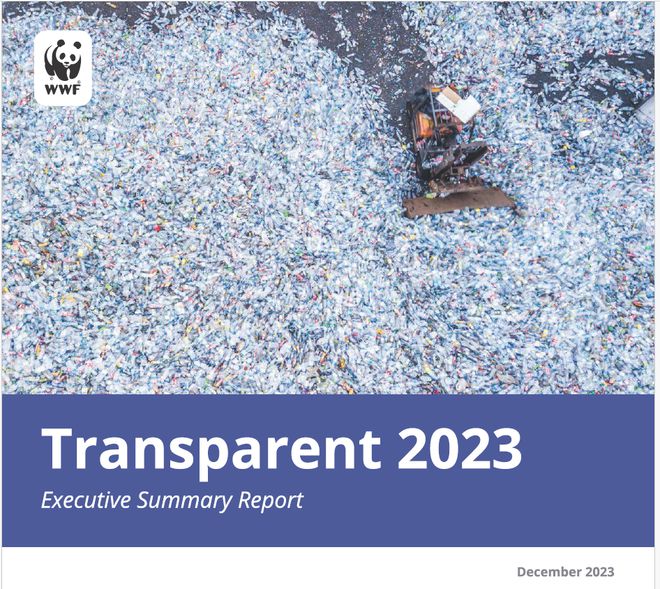2023.12.21
Amco | Procter & Gamble | McDonald's | Coca-Cola | Starbucks and other nine companies to increase the use of recycled materials in packaging
Page view:442
The World Wide Fund (WWF) ReSource: Plastic Project has released its fourth annual survey, Transparent 2023.
The report examines the plastic footprints of member companies such as Dr Pepper, Amco, Procter & Gamble, McDonald's, Coca-Cola, Starbucks and Kimberly-Clark.

The total weight of plastics in the portfolio increased by 0.8%
According to the report, four of ReSource's nine member companies reduced their plastic tonnage, while five increased it.
The total weight of plastics in the total portfolio increased by 0.8%, from 7.2 million tonnes in 2021 to 7.26 million tonnes in 2022, but their use of difficult-to-recycle or single-use plastics generally decreased.
The report documents member companies' use of recycled and sustainably sourced biobased ingredients by polymer type and form, as well as possible waste management pathways for the total portfolio, and documents progress made over specific time periods.
The proportion of plastics that are difficult to recycle has fallen
The report found that reducing the use of single-use plastics has become a key step for these member companies to deal with the plastic pollution crisis, which is currently mainly achieved by reducing the difficult-to-recycle (PS, PVC) and single-use plastics and promoting the reuse of plastic packaging.
It is understood that nine member companies have made progress in reducing the use of "hard-to-recycle plastics". In 2022, such products accounted for 1.2% of its portfolio, less than half of its 2018 baseline of 3.2%.
To varying degrees, they experimented with reusable packaging. WWF encourages companies to truly push forward the reusable packaging system, viewing reusable packaging as a "key strategy" for the transition to a circular economy of plastics.
The proportion of recycled plastics in packaging has increased
ReSource's five member companies saw an overall decrease in the use of new petroleum-based plastics tonnage between 2021 and 2022. Member companies' use of recycled materials rose from 10.2 percent in 2021 to 12 percent in 2022, and the share of recyclable packaging rose from 70.4 percent to 72.5 percent over the same time frame.
The ReSource:Plastic project is committed to making plastic sustainable by eliminating unnecessary plastic and doubling global recycling and composting.
Erin Simon, vice President of Plastic Waste and Business at the World Wildlife Fund, said: "All companies should report their plastic footprint - something we advocated in the UN Global Treaty to End Plastic Pollution. Their transparency allows us to learn lessons and take action that will reverberate across global supply chains and industries."
Previous:Plastic particles do not form,...
Next:Recycled plastic pellets: Plas...

